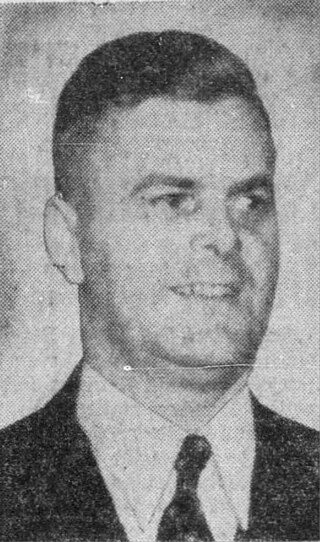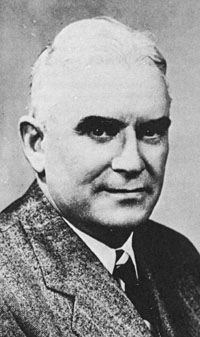BC United (BCU),formerly known as the British Columbia Liberal Party or BC Liberals,is a provincial political party in British Columbia,Canada. The party has been described as conservative,neoliberal,and being on the centre-right of the left–right political spectrum. The party commonly describes itself as a "free enterprise coalition" and draws support from members of both the federal Liberal and Conservative parties. Since the 1990s,BC United has been the main centre-right opposition to the centre-left New Democratic Party (NDP). Once affiliated with the Liberal Party of Canada,the British Columbia Liberal Party became independent in 1987. The party changed its name to BC United on April 12,2023.
The New Democratic Party of British Columbia is a provincial political party in British Columbia,Canada. The party espouses social democracy and sits on the centre-left of the political spectrum. The NDP is one of the two major parties in British Columbia (BC);since the 1990s,its rival is the centre-right BC United. The BC NDP is formally affiliated with the federal New Democratic Party and serves as its provincial branch.

William Andrew Cecil Bennett was a Canadian politician who served as the 25th premier of British Columbia from 1952 to 1972. With just over 20 years in office,Bennett remains the longest-serving premier in British Columbia history. He was a member of the Social Credit Party (Socreds).

The British Columbia Social Credit Party,whose members are known as Socreds,was the governing provincial political party of British Columbia,Canada,for all but three years between the 1952 provincial election and the 1991 election. For four decades,the party dominated the British Columbian political scene,with the only break occurring between the 1972 and 1975 elections when the British Columbia New Democratic Party governed.

Thomas Dufferin "Duff" Pattullo was the 22nd premier of British Columbia from 1933 to 1941.

Events from the year 1941 in Canada.
The Conservative Party of British Columbia,formerly known as the British Columbia Conservative Party or BC Conservatives,is a provincial political party in British Columbia,Canada. In the early half of the 20th century,the Conservatives competed with the British Columbia Liberal Party for power in the province. However,the party has had only a minor presence in the legislature since the 1950s,and last ran a full slate in 1960. The current party leader is Nechako Lakes MLA John Rustad,who was originally elected as a BC Liberal.

Byron Ingemar "Boss" Johnson,served as the 24th premier of British Columbia,from 1947 to 1952. To his contemporaries he was often referred to by his nickname,Boss Johnson,which had nothing to do with his personality,but was an anglicization of the Icelandic "Bjossi",which is a diminutive form of his birth-name of Bjorn,which was adapted into English as Byron.
The 1945 British Columbia general election was the 21st general election in the Province of British Columbia,Canada. It was held to elect members of the Legislative Assembly of British Columbia. The election was called on August 31,1945,and held on October 25,1945. The new legislature met for the first time on February 21,1946.
The 1941 British Columbia general election was the twentieth general election in the Province of British Columbia,Canada. It was held to elect members of the Legislative Assembly of British Columbia. The election was called on September 9,1941,and held on October 21,1941.

Nancy Hodges was a Canadian journalist and politician. Over her career,she served as a Member of the Legislative Assembly of British Columbia,as the Speaker of the Legislative Assembly of British Columbia,and as a member of the Senate of Canada. She was the first woman in the Commonwealth of Nations to become Speaker,and was known as a powerful women's rights activist in the Commonwealth.
Oak Bay was a provincial electoral district in the Canadian province of British Columbia. It first appeared in the general election of 1941 and last appeared in the 1975 election. Its successor is the Oak Bay-Gordon Head riding. For other ridings in the area of Victoria,B.C. please see List of electoral districts in Greater Victoria.
Herbert Bertie Anscomb was a Canadian politician in the province of British Columbia. He was leader of the Conservative Party of British Columbia from 1946 to 1952,and a cabinet minister in the Hart and Johnson ministries.

Royal Lethington "Pat"Maitland was a Canadian lawyer and politician. He served as Attorney General of British Columbia in the Hart ministry. He also served as national president of the Canadian Bar Association.
The 14th Legislative Assembly of British Columbia sat from 1917 to 1920. The members were elected in the British Columbia general election held in September 1916. The British Columbia Liberal Party,led by Harlan Carey Brewster,formed the government. Following Brewster's death in March 1918,John Oliver became Premier.
The 20th Legislative Assembly of British Columbia sat from 1941 to 1945. The members were elected in the British Columbia general election held in June 1941. The Liberals and Conservatives formed a coalition government led by John Hart. The Co-operative Commonwealth Federation led by Harold Winch formed the official opposition.
Kenneth Cattanach MacDonald was a Canadian politician. After unsuccessfully running in the 1907 provincial election,he served in the Legislative Assembly of British Columbia from 1916 to 1924 and from 1933 to his death in 1945,as a Liberal member for the constituency of North Okanagan. He was known by his initials,"K. C." He served as the Provincial Secretary for British Columbia from September 6,1924 until October 6,1924.
The Johnson ministry was the combined Cabinet that governed British Columbia from December 29,1947,to August 1,1952. It was led by Boss Johnson,the 24th premier of British Columbia,and was a coalition government that comprised members of both the Liberal Party and Progressive Conservative Party.
The Pattullo ministry was the combined Cabinet that governed British Columbia from November 15,1933,to December 9,1941. It was led by Duff Pattullo,the 22nd premier of British Columbia,and was composed of members of the Liberal Party.
The Hart ministry was the combined Cabinet that governed British Columbia from December 9,1941,to December 29,1947. It was led by John Hart,the 23rd premier of British Columbia,and was a coalition government that comprised members of both the Liberal Party and Conservative Party.







